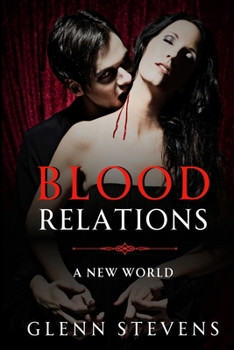Blood Relations: A New World
Eros finds warm-blooded creatures fascinating...especially the female ones.
Eros is a handsome, ageless, blood-sucking alien who finds refuge on modern-day Earth. Despite coming from an advanced civilization thousands of years ahead of Earth, he falls in love with the charm, compassion, and creativity of humanity. But after outliving his friends and lovers, Eros becomes incensed to find a way to help others live longer-especially after meeting the beautiful and powerful Camellia. And when he hears of the sacred and elusive Fountain of Youth, Eros believes he may be able to keep his love alive for good.
But with Eros's need for female blood and Camellia's mortality and protective mother fighting against their union, will Camellia and Eros find a way to be together today, tomorrow, and forever? This epic love story will have readers' hearts skipping beats and filling with warmth and positivity. Despite its incredible paranormal twists, this love story feels as real and raw as it gets.





















